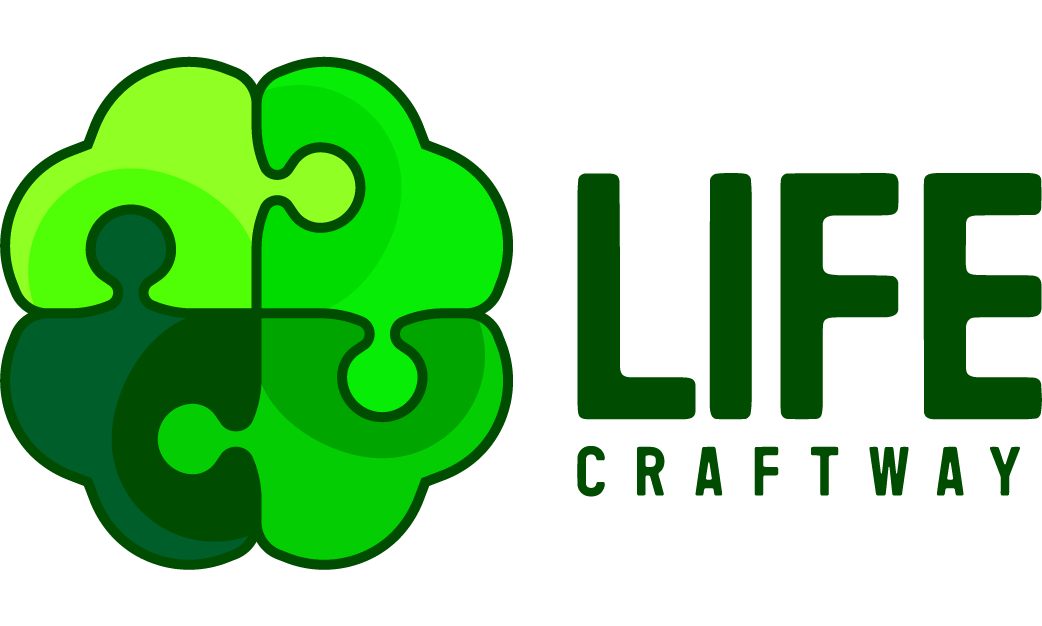Postpartum depression is a serious condition that affects many new mothers. It can be challenging for both the mother and her family.
Supporting a wife with postpartum depression requires understanding, patience, and empathy. This condition can make new mothers feel overwhelmed, anxious, and isolated. As a husband, your support can make a huge difference in her recovery. By learning how to help, you can create a nurturing environment that promotes healing.
This blog will guide you through practical steps and advice to support your wife during this difficult time. Understanding her needs and providing emotional support are crucial. Together, you can navigate this challenging period and find ways to help her feel better.
Topic of Contents
ToggleRecognizing Symptoms
Recognizing symptoms of postpartum depression (PPD) is crucial. Early detection can help in providing the right support to your wife. Below are the key signs to watch out for.
Emotional Signs
Postpartum depression often manifests through emotional changes. Watch for these key emotional signs:
- Persistent sadness: A constant feeling of sadness and hopelessness.
- Anxiety: Overwhelming worry, especially about the baby’s health and safety.
- Irritability: Frequent mood swings and irritability.
- Detachment: Feeling disconnected from the baby or partner.
- Guilt: Excessive guilt about not being a good mother.
- Lack of interest: No interest in activities once enjoyed.
Physical Symptoms
PPD can also cause physical symptoms. These are often overlooked but are equally important:
- Fatigue: Extreme tiredness that doesn’t improve with rest.
- Sleep disturbances: Trouble sleeping or sleeping too much.
- Appetite changes: Significant changes in eating habits, either eating too much or too little.
- Body pain: Unexplained aches, pains, or headaches.
- Weight changes: Noticeable weight gain or loss.
Providing Emotional Support
Helping your wife with postpartum depression involves giving her strong emotional support. She needs to feel heard and understood. This support can make a huge difference in her recovery process. Let’s explore some ways to provide this support effectively.
Active Listening
Active listening means truly hearing what your wife is saying. Give her your full attention. Make eye contact. Nod to show you are listening. Avoid interrupting her while she speaks.
Here are some tips for active listening:
- Paraphrase what she says to show you understand.
- Ask open-ended questions to encourage her to talk more.
- Show empathy by saying things like, “I can see this is hard for you.”
Reassurance Techniques
Reassurance techniques help your wife feel safe and valued. She might feel overwhelmed and insecure. Your reassuring words can help reduce her anxiety.
Consider these methods:
- Affirm her feelings: Validate what she is experiencing. Say, “It’s okay to feel this way.”
- Offer physical comfort: A hug or holding her hand can be very soothing.
- Express love and appreciation: Remind her how much she means to you.
By following these steps, you can provide the emotional support your wife needs. This support is crucial as she navigates postpartum depression.
Encouraging Professional Help
Encouraging professional help for a wife with postpartum depression is crucial. It provides the necessary support and treatment. This can help her navigate through this challenging period. Professional help can come in different forms. Therapy and medication are two primary options to consider.
Therapy Options
There are various therapy options available. Cognitive-behavioral therapy (CBT) is effective. It helps in changing negative thought patterns. Interpersonal therapy (IPT) focuses on improving relationships. It helps in understanding and managing emotions. Both therapies offer valuable tools for coping.
Medication Considerations
Medications can also play a vital role. Antidepressants are commonly prescribed. They help in balancing brain chemicals. It’s important to consult a healthcare professional. They can recommend the right medication. Regular monitoring ensures the effectiveness and safety of the medication.
Promoting Self-care
Supporting a wife with postpartum depression involves many steps. Promoting self-care is crucial. A healthy body can positively impact the mind. Encouraging self-care can help improve her mood and energy levels. Here, we will focus on two main aspects of self-care: a healthy diet and regular exercise.
Healthy Diet
A balanced diet helps maintain good health. It can also improve mental well-being. Ensure she gets a variety of nutrients. Fresh fruits and vegetables are vital. Whole grains and lean proteins are also important. Limit processed foods and sugary snacks. These can affect mood and energy levels. Prepare meals together if possible. This can make eating healthy more enjoyable. Drinking plenty of water is also important. Staying hydrated can help with overall well-being.
Regular Exercise
Exercise releases endorphins. These are natural mood lifters. Encourage her to take short, daily walks. Fresh air and sunlight can boost mood. Gentle exercises like yoga can be very helpful. They improve flexibility and reduce stress. Even simple stretching can be beneficial. Joining a local exercise group can add a social element. This can provide support and motivation. Always ensure she feels comfortable and safe while exercising.
Fostering Social Connections
Fostering social connections is crucial in helping a wife with postpartum depression. Isolation can worsen her feelings. Building a strong support network can make a significant difference. Here are some ways to foster social connections.
Family Support
Family support plays a vital role in her recovery. Encourage family members to visit regularly. They can provide emotional support and practical help. This reduces her sense of isolation.
Involve close relatives in daily activities. They can assist with household chores. This allows her more time to rest and recover. Simple gestures like cooking a meal or watching the baby can make a big impact.
Encourage open communication within the family. Discuss her feelings and experiences. Family members should listen and offer empathy. Creating a safe space for her to share can be very helpful.
Community Resources
Many communities offer resources for new mothers. These can be invaluable for her mental health. Local support groups provide a space to share and connect. She can meet other mothers facing similar challenges.
Healthcare providers often have information about these resources. Encourage her to reach out to her doctor or midwife. They can recommend local groups or counseling services.
Online forums and social media groups can also be helpful. They offer support from others who understand. Sharing experiences can reduce feelings of loneliness and isolation.
Look into local classes or workshops for new parents. These can provide both education and support. Participation can help her feel more connected to the community.
Creating A Supportive Environment
Creating a supportive environment is crucial in helping a wife with postpartum depression. A calm, organized, and understanding atmosphere can make a world of difference. Here are some essential steps to achieve this goal.
Safe Space
Ensure your home is a safe space for your wife. This means reducing stress and providing comfort. You can start by keeping the house tidy and clutter-free. A clean environment can help alleviate anxiety.
Set up a specific area where she can relax. This could be a cozy corner with her favorite books and a comfortable chair. Encourage her to use this space whenever she feels overwhelmed. This dedicated spot can become her sanctuary.
Another important aspect is to listen without judgment. When she needs to talk, offer a listening ear. Avoid giving unsolicited advice. Sometimes, she just needs someone to listen to her feelings and validate them.
Daily Routines
Establishing daily routines can provide a sense of stability and predictability. Start with small tasks like making the bed or preparing breakfast together. These small achievements can boost her confidence and mood.
Encourage her to engage in light physical activities. A short walk in the park or gentle yoga can help improve her mental health. Exercise releases endorphins, which can elevate mood and reduce stress.
Incorporate regular meal times. Proper nutrition is essential for mental well-being. Ensure she eats balanced meals rich in vitamins and minerals. Consider preparing meals together to make it a bonding experience.
Lastly, maintain a consistent sleep schedule. Adequate rest is crucial for recovery. Help her establish a bedtime routine, such as reading a book or taking a warm bath before bed.
| Task | Benefit |
|---|---|
| Keep the house tidy | Reduces stress and anxiety |
| Set up a relaxation space | Provides a sanctuary |
| Listen without judgment | Validates feelings |
| Engage in light exercise | Improves mood |
| Regular meal times | Supports mental well-being |
| Consistent sleep schedule | Aids recovery |
Understanding Triggers
Postpartum depression can be a difficult journey for new mothers. Understanding the triggers that contribute to this condition is essential in providing support. Identifying and managing these triggers can make a significant difference in the recovery process.
Common Stressors
Many factors can contribute to postpartum depression. Some of the most common stressors include:
- Lack of sleep: New mothers often experience sleep deprivation, which can affect mood and mental health.
- Hormonal changes: Hormonal fluctuations after childbirth can impact emotional stability.
- Isolation: Feeling isolated or lacking social support can exacerbate feelings of depression.
- High expectations: Pressure to be a perfect mother can lead to stress and anxiety.
- Relationship issues: Strain in relationships with a partner or family members can be a significant stressor.
Avoidance Strategies
Identifying and avoiding triggers can help manage postpartum depression. Consider these strategies:
- Prioritize rest: Encourage your wife to take naps and rest whenever possible.
- Provide support: Offer to help with household chores and baby care.
- Encourage social interaction: Help her stay connected with friends and family.
- Set realistic expectations: Remind her that it’s okay to ask for help and not everything has to be perfect.
- Seek professional help: Encourage her to talk to a therapist or join a support group.
Understanding and addressing the triggers of postpartum depression is a vital step in supporting your wife. By recognizing common stressors and employing avoidance strategies, you can help her on the path to recovery.
Staying Patient
Staying patient is crucial when helping a wife with postpartum depression. This journey can be challenging and emotional. Your patience can make a significant difference in her recovery. It’s important to understand that healing takes time. Being patient means being there for her, consistently and without judgment.
Managing Expectations
Set realistic expectations. Understand that recovery is not a linear process. Some days will be better than others. Avoid expecting quick fixes. Recognize that small steps forward are still progress. Keeping your expectations realistic can help you stay patient.
Communicate openly about your expectations. Share your thoughts and listen to hers. This can help you both stay on the same page. It’s important to be flexible with your plans. Adjust them according to her needs and comfort.
Celebrating Progress
Celebrate every small victory. Acknowledge her efforts and improvements, no matter how small. This can boost her morale and encourage her to keep going. Positive reinforcement can be very powerful.
Keep track of her progress. This can help you see the improvements over time. Celebrate milestones together. It can be as simple as a special meal or a day out. This not only recognizes her progress but also strengthens your bond.
Frequently Asked Questions
What Are The Symptoms Of Postpartum Depression?
Symptoms of postpartum depression include sadness, anxiety, irritability, and fatigue. Other signs are changes in sleep and appetite.
How Can I Support My Wife Emotionally?
Listen to her, validate her feelings, and offer reassurance. Encourage her to share her thoughts and emotions.
Should We Seek Professional Help?
Yes, seeking professional help is crucial. A healthcare provider can offer therapy and medication if needed.
Can Lifestyle Changes Help With Postpartum Depression?
Yes, regular exercise, a balanced diet, and adequate sleep can improve mood and reduce symptoms.
Conclusion
Supporting a wife with postpartum depression requires patience and understanding. Be present. Listen to her needs. Encourage professional help. Offer daily assistance with chores and baby care. Be her emotional anchor. Validate her feelings. Remind her she’s not alone. Small acts of kindness make a big difference.
Stay patient and loving. Recovery takes time. Your support matters. Together, you can navigate this challenging time and find strength in each other. Keep communication open and positive. Your love and support are crucial for her healing.







